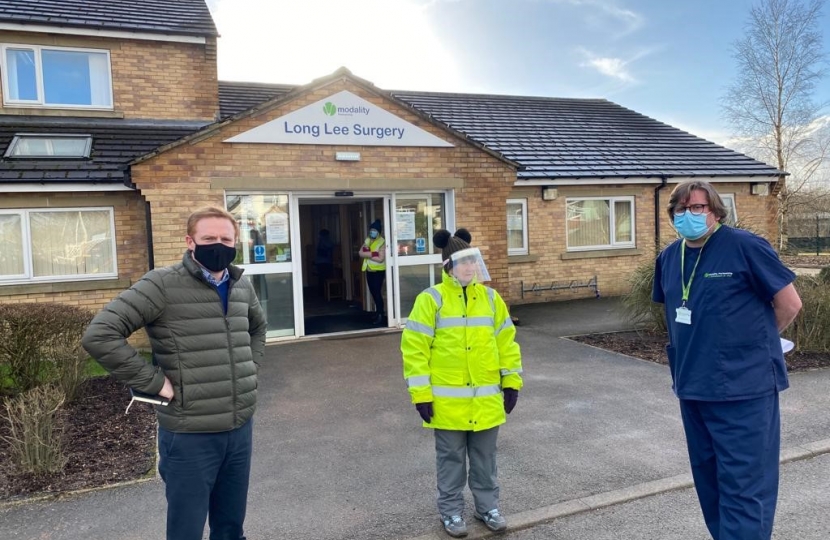
It has been over 10 months since the Prime Minister announced to the nation that we would enter our first national lockdown. Since then the nation – like the rest of the world – has battled to keep this deadly virus under control. It has been a sad start to the year for our nation as the death toll surpassed 100,000. My thoughts go out to every family across the country who has lost somebody to this indiscriminatory virus.
There is, however, light at the end of the tunnel with the rollout of the Covid vaccination programme which is the largest vaccination programme the NHS has ever run. The Government aims to have everybody in the top four priority groups vaccinated by mid-February, everybody in the top nine priority groups vaccinated by April and for every UK adult to be offered the vaccine by Autumn. There is no doubt that this task is a huge undertaking for our health service, coupled with the fact that countries all over the world are planning vaccination programmes on the same magnitude. The figures so far in the UK, however, have been very promising. At the time of writing, the UK had administered over 11,465,210 first doses of the vaccine and over 510,057 second doses. Over 88 per cent of those aged 80 and over have received their first vaccination.
Here in West Yorkshire the figures are even better. Over 350,000 people across the region have received their first dose of the vaccine, over 95 per cent of those aged 80 and over have received their first vaccination and all care homes in the region were offered their first doses of the vaccine by the end of January. I know there were reports recently that Yorkshire would be punished for its success and receive fewer vaccinations as a result of our local vaccine taskforces efficient work. This is not the case. I have met a number of times with the Vaccines Minister, Nadhim Zahawi MP who has confirmed this. Last week Yorkshire received 13 per cent of the national vaccine supply and I have had it confirmed that this will continue. The number of vaccines we receive may vary from week to week, however this is due to the national supply varying.
Locally we have four main vaccine centres: Long Lee Surgery in Keighley, Springs Medical Centre in Ilkley, Silsden Medical Centre in Silsden, and lastly Airedale General Hospital which is currently vaccinating health and social care workers. So far Airedale General Hospital’s vaccination hub has vaccinated almost 5,000 people, the majority of which are our local health and social care heroes who have selflessly soldiered on throughout this pandemic.
I recently visited the three community vaccine hubs to speak to staff so I can feed back front-line concerns directly to the Prime Minister and Vaccine Minister. I was bowled over with how efficient the centres are operating and the sheer number of vaccines that can be administered per day. Long Lee Surgery, for instance is delivering up to 600 doses per day, sometimes even higher. I cannot thank all those involved in the vaccine programme enough, from the doctors, nurses, returning NHS staff, volunteers and car park attendants – they are all doing a brilliant job.
So far the UK’s Medicines and Healthcare products Regulatory Agency (MHRA) has authorised three vaccines for deployment across the UK: AstraZeneca (Oxford) vaccine, Pfizer/BioNTech vaccine and the Moderna vaccine – the latter of which is not expected to arrive until later in the year. Both the Pfizer vaccine and AstraZeneca vaccine provide high levels of protection against Covid, with Pfizer offering 95 per cent protection after the second dose. To put this into context, the common flu vaccine provides around 65 per cent protection against the common flu. It is so important therefore that we vaccinate as many vulnerable people as possible, before moving onto the next priority groups. Take up is fantastic and I urge all to come forward for the vaccine when called – as this is our light at the end of the tunnel.

